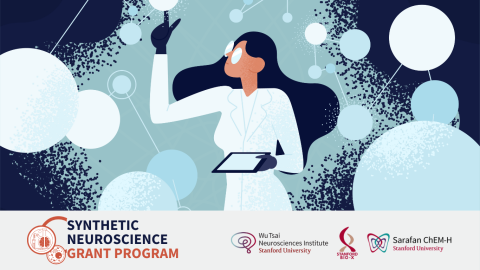Exploring intersections between synthetic biology and the neurosciences.
The Wu Tsai Neurosciences Institute, Sarafan ChEM-H, and Bio-X seek proposals for innovative, interdisciplinary, and collaborative research projects at the intersection of neuroscience and synthetic biology.
Our recent series of Synthetic Neuroscience Forums sparked wide-ranging conversations, surfacing ideas spanning from engineering synthetic neural interfaces and developing biomaterials for repairing brain circuits to advancing protein, cellular, and tissue engineering approaches for neuroscience discovery, therapeutic development, and regenerative medicine.
These examples offer just a hint of the tremendous potential for synergy between synthetic biology and neuroscience. Any promising research at the intersection of these fields could be considered for these awards. We welcome trainee contributions to these grants; however, the application must be submitted by a faculty member.
Proposals should involve teams of at least two Stanford applicants forming novel and innovative connections between these fields in order to address important problems that could not be pursued without this combined expertise.
Grants may be requested for up to $125,000 direct costs per year for two years.
Questions? Email neuroscience@stanford.edu with "Synthetic Neuroscience Grants" in the subject line.
Click the button below to view the 2024 Synthetic Neuroscience Grants application details (applications now closed). You must be logged into your Stanford email to access the application and eligibility information.
Application and eligibility information
Synthetic Neuroscience Grants Application
This application is only open to Stanford affiliates. Each proposal should have at least two applicants, with at least one being a Stanford faculty member who should also be designated as the Communicating PI.
Applications closed on April 11, 2024.
